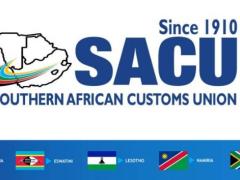ESG reporting is becoming compulsory for exporters in particular, either through local legislation or global non- tariff barriers. South Africa’s Companies and Intellectual Property Commission (CIPC) introduced mandatory ESG reporting in Q4 of 2023, alongside XBRL filing. This initially applies to public companies and state-owned companies, with voluntary filing currently open. From the financial year 2025- 26, digital disclosure of ESG data by these companies will be compulsory, according to Gary Allemann of consultancy Master Data Management. Dalit Anstey, knowledge lawyer at Webber Wentzel, points out that ESG disclosures and reporting are currently addressed in the King IV Code on Corporate Governance (King IV) as part of the integrated reporting framework approach adopted in King IV. It is mandatory for JSE- listed entities by virtue of the JSE Listing Requirements. The CIPC utilises XBRL (eXtensible Business Reporting Language) and iXBRL (inline XBRL) for digital reporting, ensuring structured and machine-readable ESG data. The CIPC updated its iXBRL Taxonomy in October 2024. Modular entry points have been updated to include the IFRS Sustainability Disclosure Taxonomy 2024. This is aimed at allowing voluntary early adopters of the International Sustainability Standards Board’s (ISSB) IFRS S1 and IFRS S2 to tag their sustainability-related financial disclosures by applying IFRS Sustainability Disclosure Standards, according to a CIPC notice. The 2024 Final Taxonomy is available on the CIPC Website. The Johannesburg Stock Exchange (JSE) has subsequently updated its ESG reporting guidelines to align with the IFRS S1 and S2 standards issued by the International Sustainability Standards Board (ISSB). “ESG reporting has evolved from being a mere statutory requirement to becoming a crucial strategic necessity,” says Neha Gajbhiye of iRISCarbon. “Companies with poor ESG practices are facing high scrutiny from investors, business partners, customers and activists.” ER
New compliance era: data submission now required
Comments | 0












